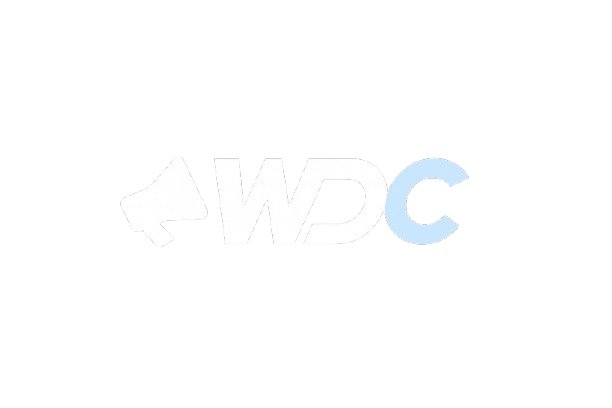In the ever-evolving world of digital marketing, 2026 is shaping up to be a watershed year. Artificial intelligence (AI)—once a futuristic concept—has become a central force driving content creation, campaign automation, personalization, and performance analysis. Businesses and marketers worldwide are witnessing a paradigm shift as AI transforms not just how marketing is done, but who does it and how fast it can scale.
In this blog, we’ll explore the game-changing impact of AI-generated content and campaign automation on digital marketing in 2026, discuss its benefits and challenges, and answer key FAQs for businesses trying to adapt.
What is AI-Content and Campaign Automation?
AI-Content refers to digital content—blogs, ads, social posts, videos, email copy, and even landing pages—generated or enhanced by artificial intelligence tools. These tools analyze existing content, audience behavior, and data trends to create content that mimics human creativity while maintaining consistency and speed.
Campaign Automation involves using AI and machine learning to manage, optimize, and scale digital marketing campaigns with minimal manual intervention. This includes audience segmentation, ad placement, real-time bidding, A/B testing, retargeting, performance tracking, and optimization—all performed algorithmically.
The Rise of AI in Digital Marketing: 2026 Highlights
As we move deeper into 2026, here are some of the major shifts already being seen across industries:
1. Mass Adoption of Generative AI Tools
Generative AI tools like ChatGPT, Jasper, Copy.ai, and video generators like Sora and Pictory are being used by over 80% of digital marketing teams globally. These platforms help marketers produce high-quality content at scale—across multiple formats and languages—with speed and cost-efficiency that traditional teams can’t match.
2. Hyper-Personalized Content at Scale
Thanks to AI’s data-processing capabilities, marketers can deliver hyper-personalized content for specific audience segments. Email campaigns, website banners, product recommendations, and even social media captions are being customized in real time based on user behavior and demographics.
3. Real-Time Campaign Optimization
AI-powered platforms can now analyze massive datasets across channels and adjust live campaigns instantly. For example, Google’s Performance Max and Meta’s Advantage+ systems use AI to dynamically allocate budgets, switch ad creatives, and test messaging variations without human input.
4. AI Video Content Becomes Mainstream
Text-to-video AI tools have exploded in popularity, enabling marketers to generate engaging short-form and long-form video content without a camera crew. In 2026, over 40% of branded video ads are expected to be AI-generated, offering massive savings and scalability.
5. AI in Voice and Visual Search Optimization
As consumers rely more on voice and visual search, AI helps marketers optimize for natural language queries and image recognition. AI tools analyze trends to reformat content for smart assistants (like Alexa or Google Assistant) and image-based platforms like Pinterest and Google Lens.
Benefits of AI-Content & Campaign Automation
Increased Efficiency
AI reduces content creation time from hours to minutes. Campaigns that once took days to launch can be automated, tested, and optimized in real time.
Cost-Effective Scalability
Brands can launch multi-channel, multi-language campaigns without hiring large creative teams—making high-quality marketing accessible to startups and SMEs.
Improved ROI
AI-powered targeting and dynamic ad placements reduce ad waste and improve conversions by placing the right message in front of the right person at the right time.
Consistency and Compliance
AI ensures brand tone, formatting, and compliance standards are maintained across channels, avoiding human inconsistency.
Deeper Insights
Machine learning identifies patterns and trends in user behavior that even experienced marketers may miss, helping in smarter strategy formulation.
Challenges and Ethical Concerns
While AI offers numerous advantages, there are some challenges marketers must navigate in 2026:
Overreliance on Automation
Depending too heavily on AI can lead to generic, robotic content that lacks emotional depth or brand voice.
Data Privacy and Ethics
As personalization deepens, the line between helpful and intrusive becomes thin. Businesses must comply with GDPR, CCPA, and new AI-related privacy laws emerging globally.
Content Authenticity and Trust
Audiences are becoming increasingly aware when content is AI-generated. Brands must balance automation with authenticity to maintain trust.
Creativity Bottlenecks
AI is great at mimicking—but not originating—human creativity. Overuse may result in repetitive, uninspired content unless human creativity is layered in.
How to Prepare Your Digital Marketing for AI in 2026
Audit Your Existing Workflow
Identify areas in your marketing workflow that are repetitive or time-consuming. These are prime candidates for AI automation.
Invest in the Right AI Tools
Explore platforms like Jasper (copywriting), SurferSEO (content optimization), Midjourney or Sora (visual/video content), and HubSpot (AI CRM).
Combine AI with Human Creativity
Use AI for research, drafting, and testing—but ensure humans add emotional nuance, strategic oversight, and storytelling.
Train Your Team
Upskill your team with AI literacy. Teach them how to use prompts effectively, verify AI-generated content, and interpret analytics.
Monitor, Analyze, and Adapt
Set KPIs and regularly evaluate AI-driven content performance. Adapt your strategies as tools and user behaviors evolve.
Real-Life Example: AI in Action
Brand: Glow Skincare UAE
In early 2026, this mid-sized beauty brand adopted AI for product descriptions, Google Ads, and email marketing. Using tools like ChatGPT and Klaviyo’s AI segment builder, they launched a spring campaign with:
- 18 AI-written blog posts in 1 week
- Over 22 email variations for 6 audience segments
- 3 video ad concepts generated with text-to-video AI
Results:
- 43% increase in web traffic
- 28% improvement in email open rates
- 2.4x return on ad spend (ROAS)
Conclusion
AI-Content and Campaign Automation are redefining what’s possible in digital marketing. In 2026, success doesn’t come from choosing AI or humans—it comes from using both strategically. Brands that blend human creativity with AI efficiency will build stronger customer relationships, create smarter campaigns, and unlock unprecedented growth.Whether you’re a solo marketer or part of a large digital team, embracing AI thoughtfully will be key to thriving in the digital landscape of 2026 and beyond.
FAQs
Q1: Can AI completely replace human marketers?
No. AI enhances productivity but lacks strategic thinking, emotional intelligence, and creativity. The most successful campaigns in 2026 are human-led and AI-assisted.
Q2: Is AI-generated content SEO-friendly?
Yes—when optimized correctly. Use SEO tools like SurferSEO or MarketMuse to ensure your AI content aligns with ranking factors.
Q3: Are AI-generated ads allowed by Google and Meta?
Yes. Google Ads and Meta Advantage+ support AI-generated creatives, but the content must comply with platform guidelines and ad policies.
Q4: How do I maintain brand voice with AI content?
Train your AI tools with style guides and use prompt engineering to ensure tone consistency. Final human editing is always recommended.
Q5: Is AI marketing suitable for small businesses?
Absolutely. AI levels the playing field, allowing small businesses to compete with larger brands without high costs or large teams.

